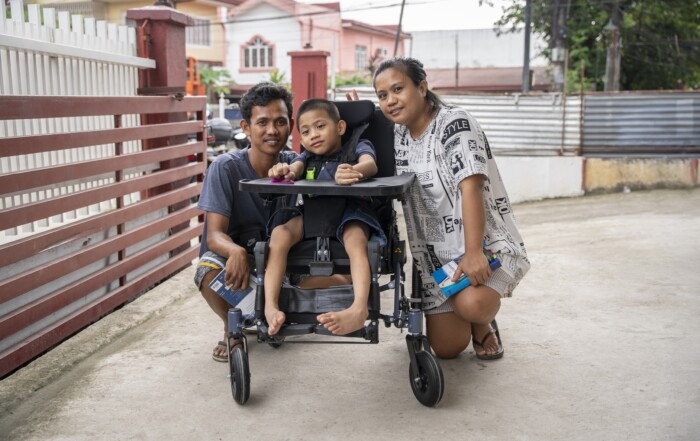Prophetic Presence of Joy
We are grateful to meet again with Dr. Daniel Kyungu, a social scientist and a bishop with the Church of Christ in the Democratic Republic of Congo (the DRC).
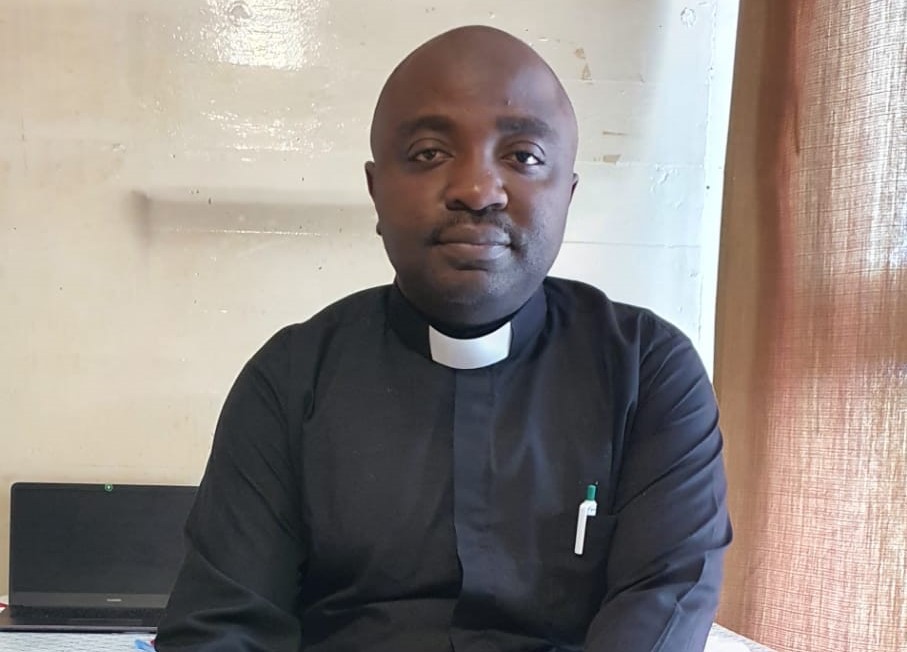
For this Q&A, we begin with his God-given vision of the Bethany Theological Center for both disabled and nondisabled pastoral students. It’s beautiful. Then, we ask him to share about how he journeys through physical disability and even warring conflict with a spirit full of joy. It’s a powerful testimony. May we all be encouraged and challenged by his faithful example. I certainly have been. In case it was missed last year, the first Disability in Mission Q&A with Dr. Kyungu— “When Disability Meets Agape” —was published on August 25, 2023. I, Kevin Avery, was leading that interview as well.
Q: Dr. Kyungu, we have heard that construction of the theological center has begun. That’s exciting!
A: Yes, very much. The Lord is gracious. Asante, Baba [Swahili for Thank you, Abba Father]. By the gracious provision of the Lord and by support from a ministry called Co-workers in Stuttgart, Germany, we have been given funds to build this training center for ministry. It’s very important. Especially in the DRC, there is a great need for the training of the Lord’s servants. And it’s a pressing need. This need for training does not only consist of training in theology but also in all areas of life in society from a holistic perspective of evangelism and discipleship.
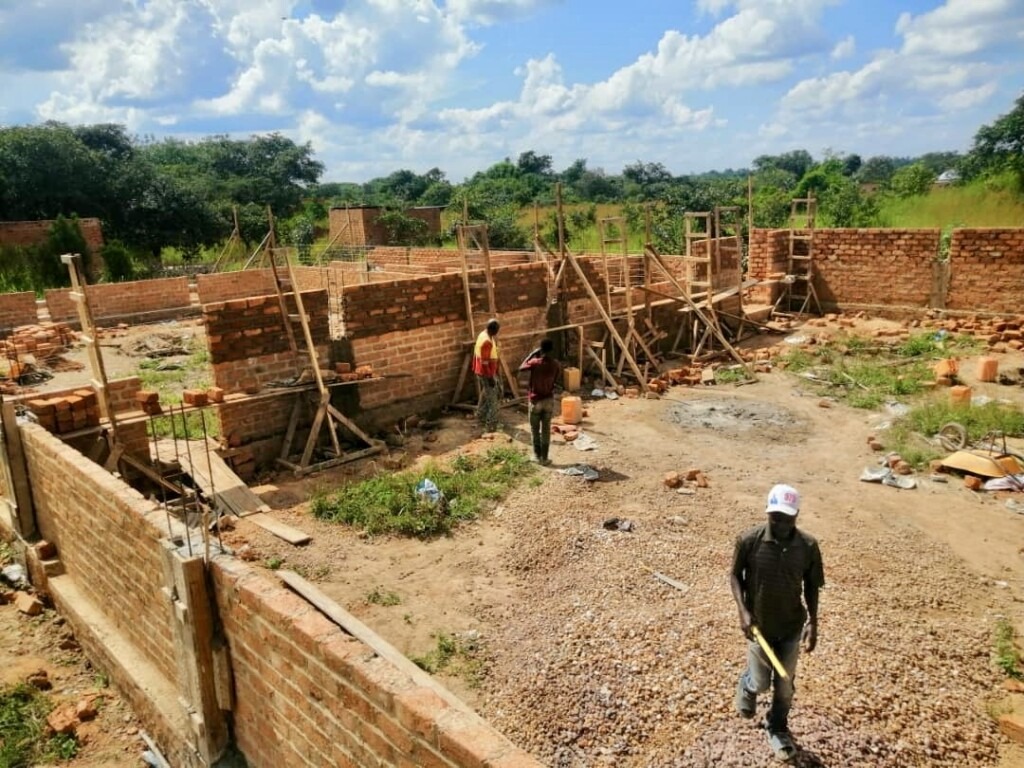
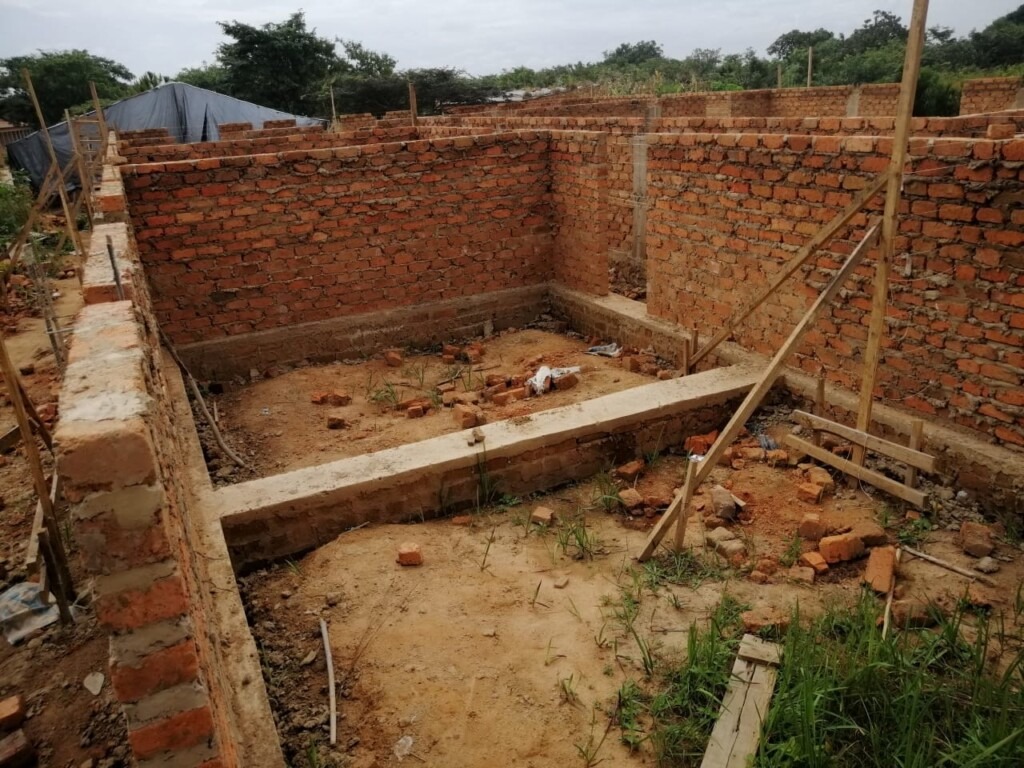
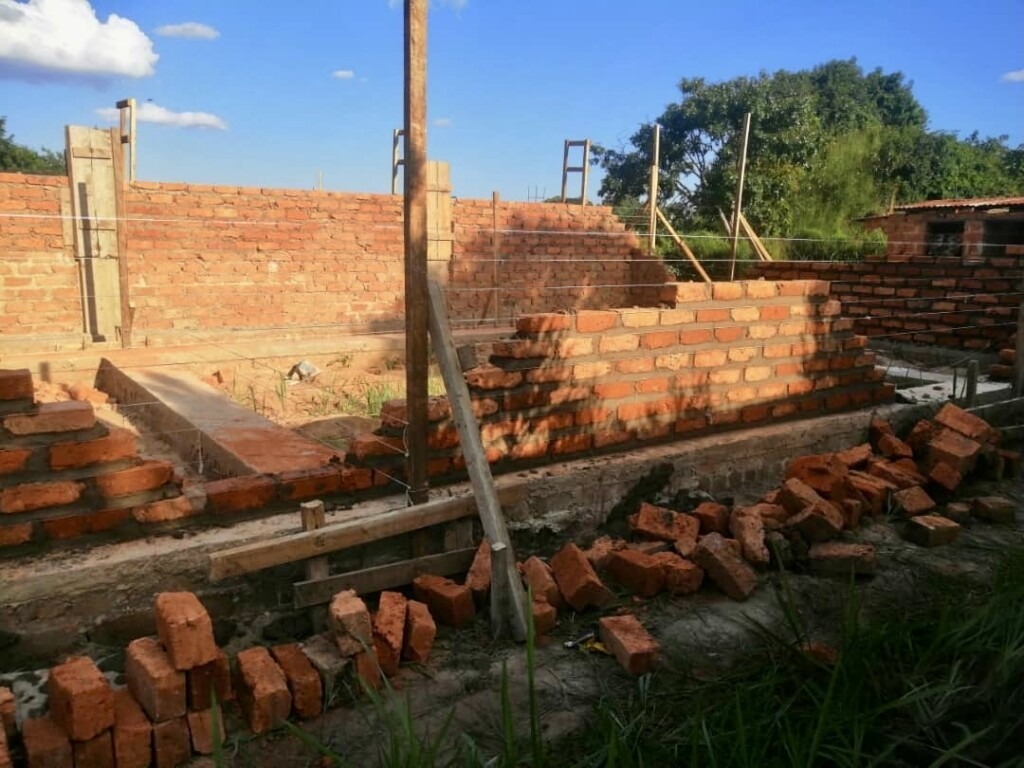
This Bethany Theological Training Center is being constructed in the village of Muyeye in Lubumbashi, near the southern border with Zambia. The center’s mission is to equip the Lord’s servants to serve him and their neighbors effectively, thereby multiplying disciple-makers.
Q: You are including people with disabilities?
A: Yes, we will be having four or five students with disabilities staying at the center itself because moving around in the DRC would be too difficult for them. First, the environment is not conducive. Worse, society is adamantly against those who have a disability, seeing the disability as a curse or even the result of witchcraft that needs to be dealt with. Because of this, most just stay at home. Very few persons affected by disability attend school or even church. I am very unusual to be a bishop with a disability in the church. But we pray this situation drastically changes.
Q: By being “dealt with,” do you mean that those with disabilities may be killed if they leave the home?
A: Sometimes, they are killed in the DRC. It’s heartbreaking. In my city in the south, death is not a common result, but individuals with disabilities are still mistreated in different ways. Disability in my country is dangerous, no matter where the person lives or if the disability is physical or mental. The population’s attitude towards people with disabilities stems from the belief that disability is a punishment for one own’s faults or the faults of parents, generally the mother.
Q: So, a mindset like that of the disciples when they asked Jesus whose sin caused the blindness, as recorded in John 9.
A: Yes, and sadly, it’s an attitude present in the church. There are few—if any—members of local churches in the DRC with disabilities. I did not personally encounter any mistreatment in the church before I had pastoral responsibilities, but once I did, yes. There was a time when some brothers stood up and refused to be led by a person with a disability. Sometimes, such resistance happens in the middle of worship. In such instances, discouragement would easily crash in if we allowed it to fester, but by the grace and power of God, we take every thought captive and refuse to cooperate with the enemy—with the one who accuses the believers and deceives the hearts of unbelievers. Instead, with perseverance and with the love we have for God and for our neighbor, we overcome adversity through forgiveness and by the Word of God.
Again, spiritual training is so necessary. How can we do this unless taught? Along with discipling those with disabilities, we will also have about 50 nondisabled students at the Bethany center, and they will come each day for their studies.
Q: We celebrate this endeavor with you. It clearly stems from the Lord. I know the center itself is still being constructed, but when did you first begin to plan for it?
A: The Lord first gave me this vision when I was a teenager, but I lacked any funding to proceed at that point.
Q: So, the idea came about the time you were first affected by the disability?
A: I dealt with the three days of paralyzing sickness when I was 12.
Q: Was it polio?
A: Both my twin brother and I were vaccinated for polio, so it is a mystery of what exactly happened to me. My parents certainly couldn’t understand it. I was in the hospital for two weeks, but there was no opportunity to see a specialist. But yes, it was a polio-like illness. At first, I couldn’t move my arms or legs. I had to stay in bed for a year. I never went outside, and I lost my closest childhood friend. He no longer did anything with me. It was very hard.
Q: You couldn’t use a wheelchair?
A: My parents could not afford one.
Q: I am so sorry that you had to stay in bed so long and that you lost your good friend, but I remember you mentioning last summer that the disability allowed you to know Jesus. Thank God it was used for your salvation. Can you describe how this happened?
A: When I was 14, I was so distraught—in deep despair—so my brothers carried me to the church. My parents had taken us all to that church growing up, and I started singing in the choir at age 10. Church members who knew me before I was disabled had a sense of compassion and wanted to see me return to normal. They prayed for me a lot and supported me, but I still didn’t know Jesus. So that day when my brothers carried me, I was crying out to God, asking why something so terrible was afflicting me. Why did he allow the disability and the social rejection? After a time, I was so worn out I fell asleep on the pew.
While asleep, I had a dream, a vision of a hand opening a Bible to 2 Corinthians, chapter 5. The index finger pointed to verse 17. “If anyone is in Christ, he is a new creation. Old things have passed away; behold, all things have become new.” I then woke up and read 2 Corinthians 5:17 in the Bible that I had. After reading it, an immense joy came over me, covering me and infilling me—rising up within me with new life and freedom—and the weight of all the anxieties, distress and isolation that had threatened my peace for such a long time was miraculously taken away. When I got home, I was shining with joy, and my mom couldn’t believe it. She cried as she saw my complete transformation. And that day’s level of joy and peace is what has continued with me to this day, more than two and a half decades later.
Q: Amazing. Praise Jesus! But truly day by day with joy all these years? Despite hardships?
A: Yes, because his joy is in my spirit. The Spirit of Christ has recreated and infilled my own spirit. Zechariah 4:6 says, “‘Not by might nor by power, but by my Spirit,’ says the Lord Almighty.” I know that God uses my weakness—my brokenness and disability—to shine brightly. And because of this joy, I was given opportunities to preach that same 14th year. And every time that I would preach, so many congregants of the church would weep and repent. It was clear the power of God was in me, like it says 2 Corinthians 4:7. “But we have this treasure in jars of clay to show that this all-surpassing power is from God and not from us.” By 15, I was asked to be an elder of the church.
Not long after that, the rest of my family had to flee. We were then living in Kalemie, located in the eastern part of the DRC near the border with Rwanda. It was the RCD-Goma war, which began on August 2, 1998. This rebellion was supported by the Rwandan army, and Rwandan soldiers were present in Kalemie. My mother didn’t want to leave me behind, but she had a new baby, and Congolese soldiers told her she had to consider the whole family and protect the baby. The family would need to be walking for 200 kilometers to find safety, so I could not go. My father was out of town, already in the south.
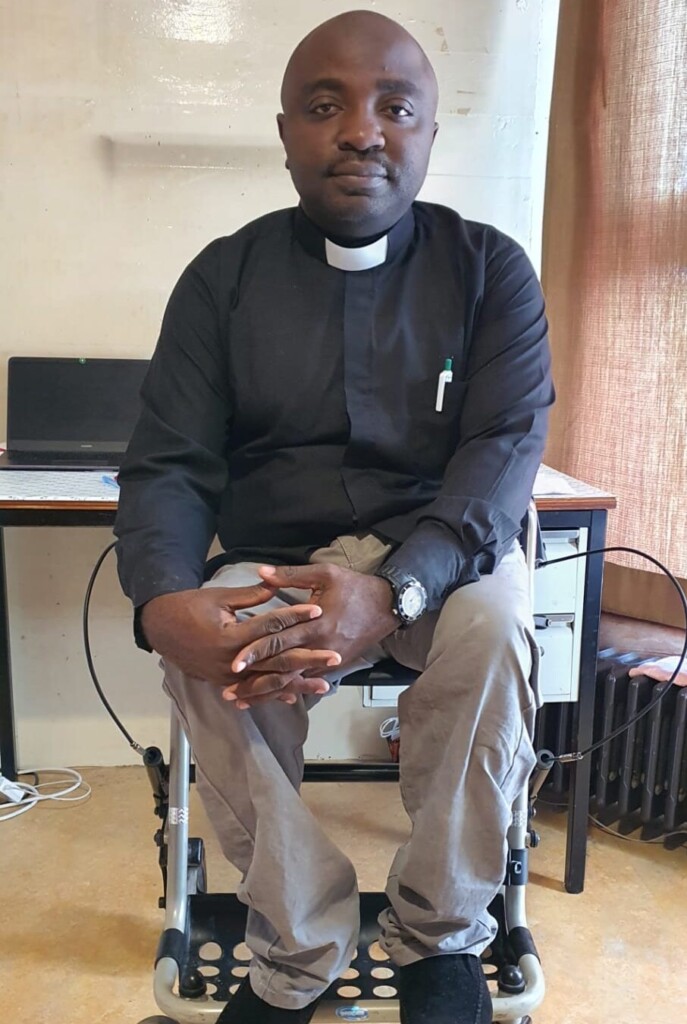
Q: Walk 200 kilometers? And your family had to leave you behind?
A: Yes, but the joy of the Lord was my strength.
Q: How did you survive? How did you eat or get around?
A: I asked two women of the church to help me start a restaurant in my home. My mother had run a restaurant previously, so I knew how to cook. Also, necessity compelled me to learn how to use crutches to move around.
Most of the restaurant clients were Rwanda troops. I became friends with a leader of the Rwanda force who protected me from being killed.
Q: Were you able to rejoin your family?
A: When I was 19, soldiers from the United Nations got me to the airport to fly to Lubumbashi, where my family was living. Before I departed, many people came to the airport to send me off. They were weeping and asking who else could give them such joy? The UN officers asked me if I were connected to an important family to gather such a response, and of course, I could tell them the Lord Jesus, in response to both questions! It was during these years that the Lord began giving me a vision to build a theological training center, an agape love community of faith who can know Christ fully and who can serve him with joy and adoration.
Q: Amen! Thank you, Dr. Kyungu. Your insight—your testimony—is wonderful, and may the Lord continue to bless you and family and the formation of this Bethany Theological Training Center. Thank you for extending the joy of the Lord to the DRC, to Africa, and to the ends of the earth, including those of us in the West.
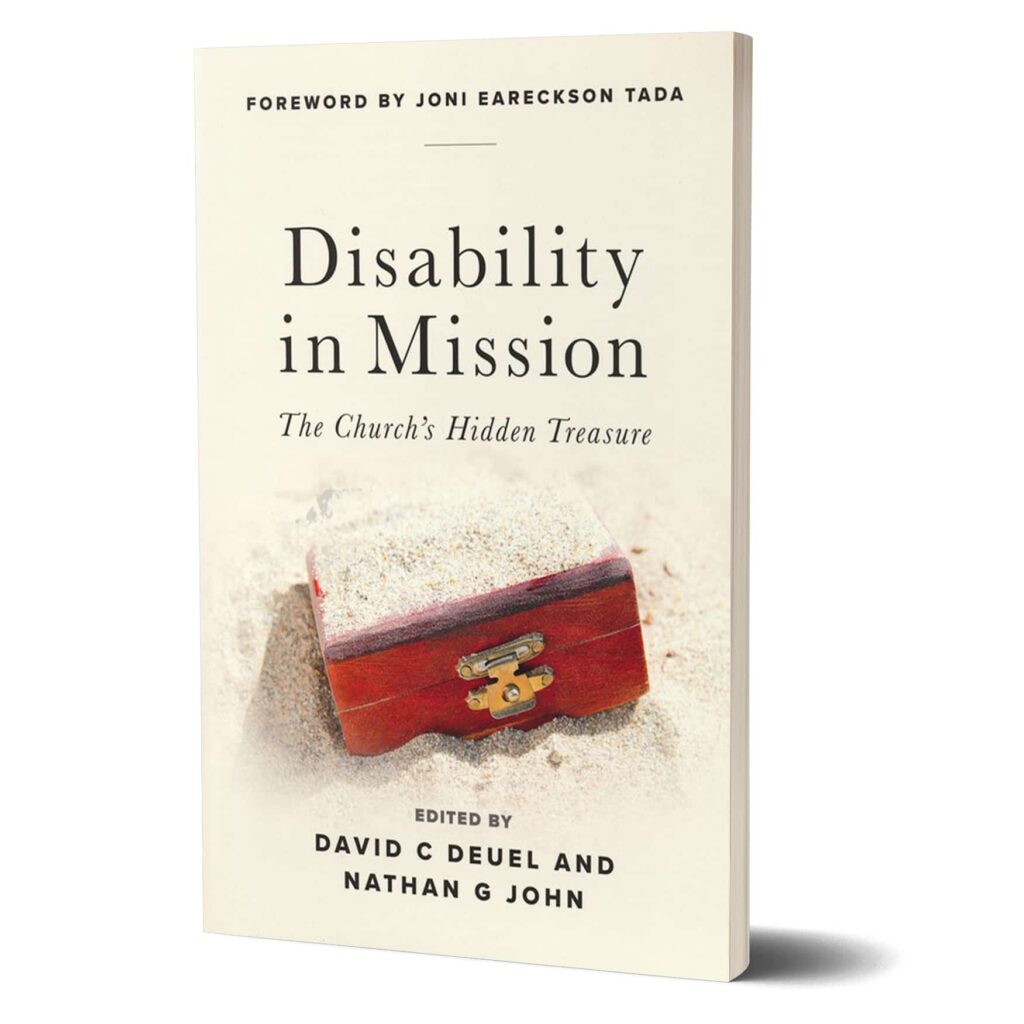
Disability in Mission
Disability in Mission: The Church’s Hidden Treasure outlines a radical change in approaches to missiology, missions, and praxis for the twenty-first-century global cultural context. It explores a pattern whereby God works powerfully in missions through disability and not in spite of it.


